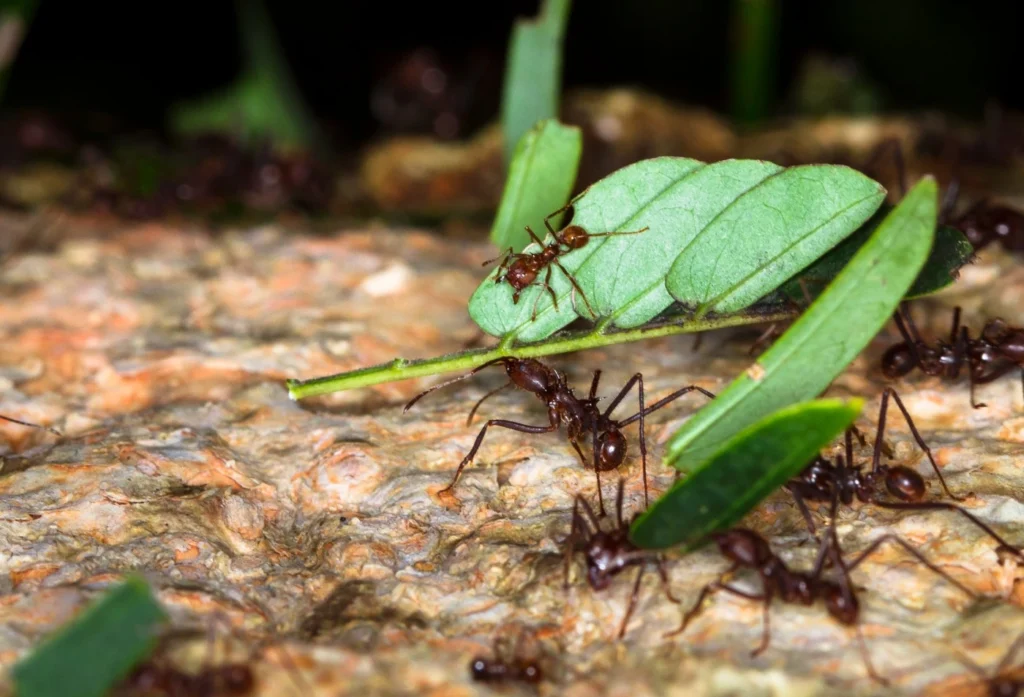Natural Ways to Repel Ants Effectively
Ants may be small, but their presence inside our homes can feel overwhelming. Many households constantly seek reliable answers to what repels ants naturally without resorting to chemicals. Fortunately, nature offers a wide array of solutions that are safe for children, pets, and the environment. With a mix of common household items and aromatic herbs, we can create spaces that ants instinctively avoid.
Understanding Why Ants Invade Homes
Before we dive into solutions, it helps to understand why ants choose our indoor spaces in the first place. Ants venture inside primarily in search of food, water, and shelter. Crumbs on the counter, unsealed containers, or even moisture from a leaky sink can draw scouting ants. Once they find a good spot, they leave scent trails to invite the entire colony. Prevention hinges on eliminating these attractants and incorporating proven repellents to disrupt their behavior.
Common Household Items That Repel Ants Naturally
Nature provides a treasure trove of simple yet effective tools right in our kitchens and pantries. Some materials confuse ants' scent trails, while others create physical or chemical barriers they simply will not cross.
-
Vinegar: Ants rely heavily on scent trails to navigate. A 50/50 solution of white vinegar and water sprayed along baseboards, windowsills, and other common entryways eliminates these scent trails and keeps ants at bay.
-
Lemon Juice: Much like vinegar, the acidic properties of lemon juice disrupt ants' scent markings. Fresh lemon juice applied to thresholds or mixed with water for a spray is simple yet effective.
-
Cinnamon: The strong smell of cinnamon can disorient ants and repel them from treating an area as a path. Sprinkling powdered cinnamon or placing cinnamon sticks near entry points deters them naturally.
-
Cucumber Peels: Bitterness in cucumber peels acts as a natural ant repellent. Leaving fresh peels at infested spots or along windows and doors can reduce ant traffic significantly.
-
Chalk: Surprisingly, the chalk's calcium carbonate content interferes with ants' ability to follow scent trails. Drawing chalk lines around doors and windows creates a natural barrier.
If you face a persistent issue, combining several of these natural methods often yields the best results. For example, vinegar spray paired with cinnamon powder around doors forms a double-pronged defense.
Herbs and Plants That Naturally Repel Ants
Nature's own garden offers powerful defenses against pests when we select the right plants. Strategically using plants around the home or even incorporating them into indoor gardens can serve double duty as décor and pest control.
-
Mint: Fresh mint's strong scent is unbearable for ants. You can plant mint around your home’s foundation or keep potted plants near entryways. Crushed dried mint leaves also work wonders indoors.
-
Lavender: While we adore lavender's calming fragrance, ants cannot tolerate it. A bouquet placed on an entry table or sachets tucked into closets can act as a natural deterrent.
-
Rosemary: In addition to seasoning your meals, rosemary serves as a robust ant repellent. Growing it near patios or doorways offers natural protection while adding beauty to your garden landscape.
-
Catnip: Containing a compound called nepetalactone, catnip is highly effective at repelling ants and other insects. An indoor pot of catnip can serve as a mighty shield.
Integrating functional plants indoors is not just practical; it deeply enriches our living spaces. Those interested in broadening their indoor green spaces might also enjoy exploring tall indoor plants for small spaces.
Essential Oils That Deter Ants
A few dabs of potent essential oils can protect your home remarkably well against ants. Many essential oils not only smell heavenly to us but also act powerfully against unwanted insects.
-
Peppermint Oil: A few drops on cotton balls placed in closets, drawers, or entry points release a scent barrier ants dislike.
-
Tea Tree Oil: Known for its antimicrobial properties, tea tree oil also repels ants. Mix 10 drops with two cups of water to create an effective DIY spray.
-
Eucalyptus Oil: Ants shy away from eucalyptus’ potent aroma. Sprays or soaked cotton balls both serve as efficient deterrents.
Essential oils offer wonderful flexibility; you can blend a few types to create a customized aromatic defense that also refreshes your home.
Natural Remedies for Keeping Ants Out of Specific Areas
Different areas of the home often require varied strategies depending on their conditions and uses. Efficient home care means tailoring our repellents to our environment.
Kitchen: Wiping countertops with a vinegar solution and sealing food in airtight containers keeps ants from detecting food sources. Diatomaceous earth, a non-toxic powder, sprinkled under appliances can act as an invisible fortress.
Bathroom: Moisture attracts ants seeking water. Using a tea tree oil spray along the sink, tub, and toilet base helps eliminate trails.
Garden and Patio: Mint, lavender, and rosemary planted around outdoor dining areas discourage ants naturally without affecting the aesthetics of the space.
The kitchen remains the most common battleground in the war against ants. For those needing further tips tailored specifically to that challenge, consider these home remedies for ants in the kitchen.
Prevention Tips to Minimize Ant Problems
While knowing what repels ants naturally is powerful, preventing infestations before they take hold is the wisest strategy.
-
Seal Entry Points: Caulk cracks around doors, windows, baseboards, and piping where ants may sneak inside.
-
Practice Good Hygiene: Immediately clean up spills and store food properly. Regular sweeping and mopping removes tempting crumbs.
-
Fix Leaks: Eliminate sources of standing water by tightening plumbing and making necessary home repairs.
-
Outdoor Care: Keep tree branches trimmed back from windows, and clear away debris piles where ants could nest.
Home maintenance practices not only prevent ants but also contribute to a more enjoyable, clean living space. If you're feeling inspired to update your home's style while you protect it, you might love ideas like stunning beamed ceiling ideas for living rooms.
When Natural Methods May Not Be Enough
It’s important to acknowledge that although natural methods are typically effective for mild to moderate infestations, severe infestations may require professional intervention. If you notice large amounts of ants consistently despite your efforts, consult a pest control expert to prevent the problem from escalating.
However, applying natural deterrents early and consistently usually keeps populations manageable and supports a healthier home environment without harsh chemicals.
Final Thoughts on What Repels Ants Naturally
Successfully deterring ants from our homes often starts with a proactive mindset, an understanding of their habits, and the consistent use of natural repellents. By incorporating everyday household items, planting strategic herbs, and using essential oil sprays, we can make our homes uninviting to ants without compromising our household’s natural beauty and safety.
Choosing natural solutions not only addresses the immediate challenge of what repels ants but also nourishes a deeper connection to our living spaces, fostering homes that are healthier, more sustainable, and more inviting for us—and a lot less welcoming for ants.



